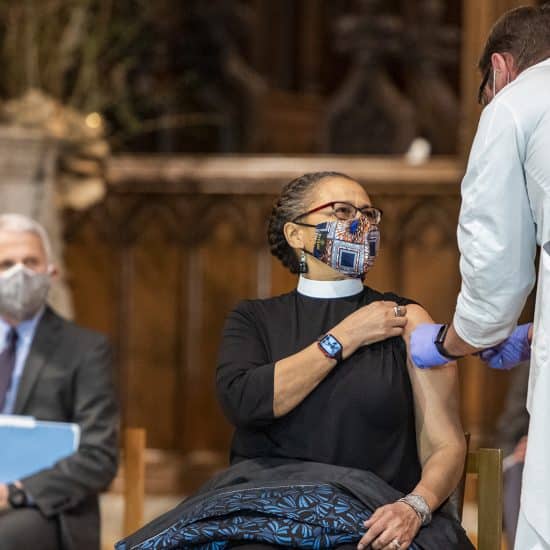RICHMOND, Va.—When a minister gets fired, will a search committee automatically set his or her resume aside or give it a fair hearing?

|
Many pastors who had to leave their churches discover search committees are reluctant to interview them for fear they have done something wrong or lack competence. Although they believe God has called them, churches often are hesitant to do so.
"Any time you go through a forced termination, you are under a cloud of suspicion," said Charles Chandler, executive director of Ministering to Ministers, a Richmond, Va.-based advocacy group. "And when those who engineered the termination withhold specific reasons from the rest of the congregation, it fuels the suspicion that some moral or ethical transgression was involved.
"This may not have been the case at all, but when people are told, 'If you just knew what we know, you would feel the same way we do,' church members think, 'It must have been something big.'"
According to statistics compiled by LifeWay Christian Resources, 609 clergy in Southern Baptist churches were terminated in 2010. Chandler is quick to point out, however, what LifeWay freely admits—that figure is only an approximation.
Each year, LifeWay asks associational directors of missions to report to Baptist state conventions the number of forced terminations in their associations. Since directors of missions cannot include firings they do not know about, not all the directors of missions report, and not all state conventions forward the results, the total number of dismissals is assumed to be higher—perhaps substantially so. Also, the figure does not include those who were forced out by threat or by conditions that make it too unbearable to stay.
Chandler maintains if a pastor search committee likes everything else about a candidate, a forced termination should not automatically disqualify the person. He also recommends, however, that all serious candidates be carefully vetted. Candidates' references should be called, and they should be asked for names of other people who know the candidate. Likewise, these should be called and asked for other names.
Chandler calls this "going three deep." The committee will get beyond references selected by the candidate who almost are certain to say positive things.
According to LifeWay research, the top 10 reasons pastors are dismissed are:
• Control issues: Who is going to run the church?
• Poor people skills on the part of the pastor.
• The pastor's leadership style is too strong.
• The pastor's leadership style is too weak.
• The church already was in conflict when the pastor arrived.
• The church is resistant to change.
• Conflict with other staff.
• Unethical conduct, such as mismanaged money or dishonesty.
• Administrative incompetence on the part of the pastor.
• Decline in attendance.
It is one thing for a pastor to be fired over leadership issues and another when ethical or moral transgressions have occurred. What happens when a pastor experiences moral failure?
Denominations respond in various ways to these circumstances. Highly structured denominations usually outline a process by which fallen ministers may be restored to positions of service. An article in the Assemblies of God bylaws is devoted to discipline, which, in the cases of moral failure, calls for the pastor's credentials to be suspended one or two years. During this period, the minister follows a process outlined by local denominational representatives. Credentials are not automatically restored; it depends on the recommendation of those supervising the process.
Baptists' congregational governance often isolates churches experiencing this kind of trauma and prevents them from getting the help they need, said the Virginia Baptist Mission Board's Ken Kessler.
"Because our polity makes it difficult to impose a specific restoration process, we deal with issues on a case-by-case basis," said Kessler, who helps match ministers and congregations. "We encourage churches to contact us if a pastor or staff member experiences a moral or ethical failure of some kind. But in truth, when such cases occur, we often don't even hear of them, because they are handled internally by the church leadership."
Cecil Deadman of the Baptist General Convention of Texas, agrees, but said: "What we would try to do is get (those ministers) into counseling. I try to get them to someone in leadership who knows them so they can work with them."
Kessler emphasizes a coaching approach, such as one provided for both the fallen minister and the grieving congregation through Virginia Baptists.
Baptist congregational polity restricts state or national organizations from suspending the rights or credentials of a minister. Texas Baptists, however, have found a way to protect churches from calling a minister with a moral problem. The Baptist Building maintains a file containing the names of ministers who have confessed to inappropriate sexual behavior, have been disciplined or fired by action of the church, or have been convicted of wrongdoing.
By submitting the names of individuals a search committee is considering, the committee can learn if potential candidates are in the file.





